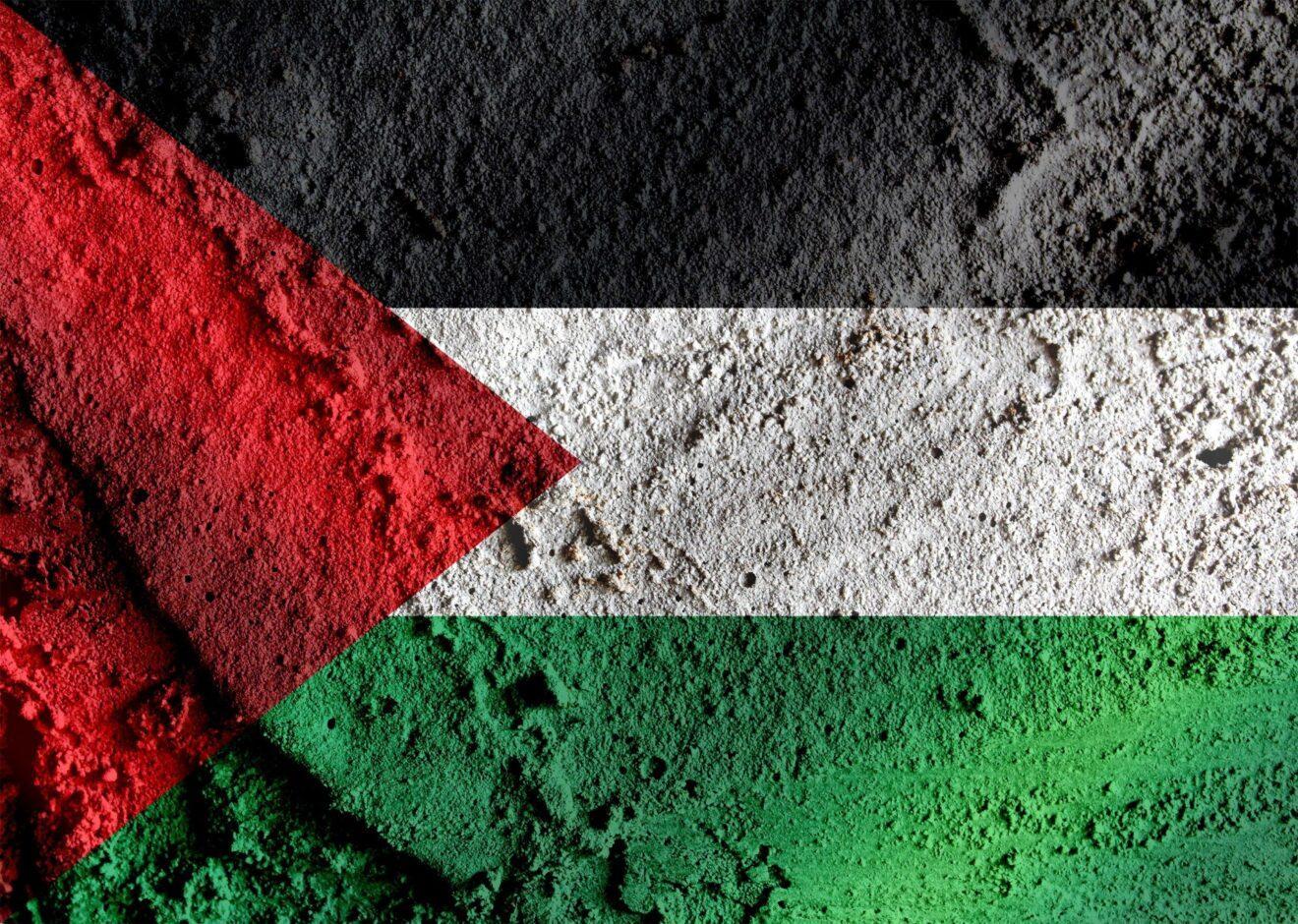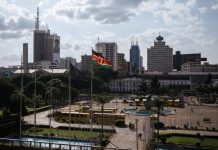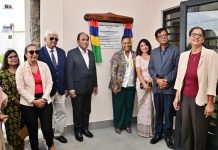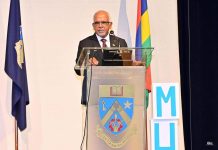Africa-Press – Mauritius. On December 29 2023, South Africa started a proceeding against Israel before the International Court of Justice (ICJ). The submissions declared that Israel has been committing genocide against Palestinians in the Gaza Strip, in violation of the 1948 Genocide Convention.
South Africa defines Israel’s conduct as a “75- year apartheid, 56-year occupation and 16-year blockade of the Strip”. South Africa , in its submission to the ICJ, explains that the “acts and omission” by Israel “are genocidal in character because they are intended to bring about the destruction of a substantial part of the Palestinian national, racial and ethnical group”.
South Africa is asking the Court to order Israel to immediately stop the war. However, since cases brought before the ICJ take years to reach a verdict, South Africa requested, in the meantime, to render immediate provisional measures of protection towards Gaza’s civilians, including the cessation of military operations by Israel.
Genocide is defined by the Genocide Convention as committing one or more acts with the intention to destroy, in whole or in part, a national, ethnic, racial or religious group”.
The convention was adopted by the UN on 9 December 1948 in Paris and represented the first act towards the development of international human rights and international criminal law as we know it today. It was drafted as a response to the atrocities of World War II and the Holocaust and it has been ratified by Israel the 17th August 1949.
Once ratified, the Convention obliges States to not commit genocide, to assure all measures to prevent it, to enact the necessary legislation to give effect to the provisions of the convention, and to ensure effective penalties to those found guilty of criminal conducts according to the convention.
South Africa based it’s argument on Israel’s breach of the Genocide Convention by reporting the 23,000 people (including 10,000 children) have been killed in Gaza since October 7, as announced by the enclave’s health ministry.
One of the advocates representing South Africa, Adila Hassim, demanded the ICJ confirm, in the short term, that some of Israel’s actions fall within the definition of the convention.
Hassim later reported the five main “genocidal acts” of which South Africa accused Israel of committing: mass killings of Palestinians, bodily and mental harm of people in Gaza, forced displacements and food blockade, destruction of the healthcare system and the prevention of Palestinian births.
The application further included the request for the indication of provisional measures against Israel and for the protection of Gaza’s civilians. In its Order of 26 January 2024, the Court responded to South Africa’s submission.
The Court ordered Israel to ‘take all measures within its power’ to prevent the commission of acts prohibited in the Convention. . . ’ , take immediate and effective measures to enable the provision of humanitarian relief of Gaza, and take effective measures to prevent destruction of evidence relating to allegations of acts contrary to Genocide Convention.
Furthermore, Israel must submit a report to the Court within one month regarding its conduct in response to the order. South Africa was the first country to report Israeli’s actions after October 7, 2023.
The ruling has been backed by other countries, like the 57 member states of the Organization of Islamic Countries (OIC), composed of Saudi Arabia, Iran, Pakistan and Morocco.
Malaysia, Turkey, Jordan, Bolivia, The Arab League (composed of 22 States), Colombia, Brazil and many other advocates and civil society groups followed suit. Israel responded to the accusations, claiming that South Africa had presented a profoundly distorted view of the hostilities happening in Gaza.
Israel’s lawyers argued that all the deaths reported in Gaza since October 7 were Hama’s fault, and that the militant group had been using schools and hospitals for military purposes and caused their collapse.
Tal Becker, the Israeli foreign ministry’s legal adviser, defined South Africa’s request to the ICJ as “unconscionable”, considering the killings, rapes, and mutilations which occurred last October.
He further argued that the purpose of reporting such details is not to absolve Israel from its responsibility to comply with international law, but as a way to explain Israel’s reaction and what it had to face after the Hamas attacks.
However, operations enacted by Israel go far beyond a mere response to the attacks, considering that Israel has intensified military operations in Gaza and killed more than 27000 Palestinians since October 7.
Israel is supported by the US and most EU countries, apart from Belgium and Slovenia , which have express their agreement with the ICJ’s decision. The ICJ ‘s ruling is a call for action: to bring about a ceasefire and humanitarian support to the population of Gaza.
South Africa’s appeal has also alerted the ICJ to the grave situation on the ground, and the urgent measures needed to deal with it. The Court requested for additional help from international organisations to deliver life-saving assistance to people in Gaza.
The war in Gaza has divided the world, which is not conducive to peacemaking. Nations siding with Israel have been sending arms to boost its military operations, while those backing the Palestinians are trying to enter the territory with food and medical supplies to help the population under fire.
Polarisation hampered requests for an immediate ceasefire at the UN last December. The veto power possessed by countries backing Israel, like the US, prevents anyone from stopping the ongoing genocide in the Gaza strip.
Calls by international organisations and Palestinian groups to end the violence and destruction, and the ICJ’s urgent requests, will be for naught if the world can’t take a stand against genocide.
For More News And Analysis About Mauritius Follow Africa-Press







